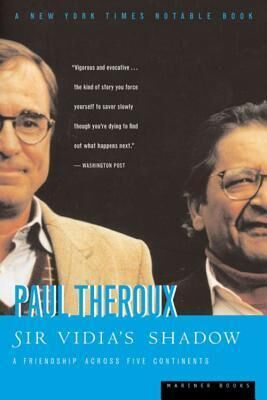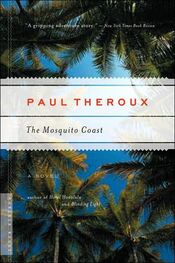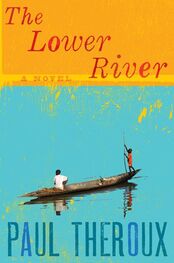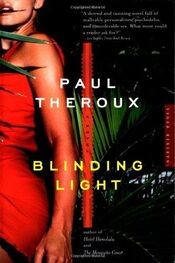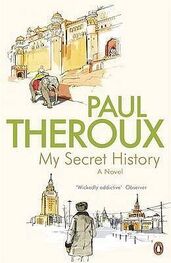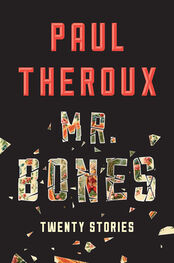Vidia said snappishly, “I’m not interested in the work, I’m interested in the man.”
In a sudden, panicky non sequitur, seeking advice, I said I was thinking of seeing a psychiatrist.
Naipaul said, “No, no, no, no, no.”
“Then what’s the solution to my problem?”
“You will never solve it. There is no solution. You will always be divided.”
The next day (and this is the great thing about diaries, the punctilious chronology), he called me in the afternoon and asked whether I had written the letter to my publisher on his behalf. I told him truthfully that I was at that moment writing the letter. He sighed and asked me what he should do about his agent’s dereliction. “This is very bad. He has let me down.”
I said, “Do nothing.”
This was perversity on my part, just the sort of nonadvice he had been giving me. Perhaps he suspected this, because he alluded to my “sentimental problem” and repeated, “There is no solution!”
“I’m worried,” I said.
“Don’t worry. Enjoy the drama of it.”
Enjoy the drama of going off my head?
A few weeks later, the Nobel Prize in literature was announced. Such announcements, and the weeks of speculation that preceded them, were always hard for Vidia, who was constantly mentioned as a possible candidate. I remembered our discussion, how the Nigerian Wole Soyinka had been given the prize; how Vidia had said, “Has he written anything?"; and at last how Vidia had said that the Nobel Prize committee was, as usual, “pissing on literature… from a great height.”
But from my diary I saw that the conversation had been longer than I remembered. After denouncing the prize committee, Vidia had taken a swing at the vocation of writing.
“I am losing faith in the profession,” he said. “I think I have been foolish. It’s like suspecting your mistress has been unfaithful to you.”
On a later page of the diary we talked about London bookstores, which in my state of mind were a source of solace to me.
Vidia said they just irritated him. He said, “I go into bookstores. It’s all rubbish! They are like toy shops!”
Was anything lost, I wondered, by these afterthoughts and discoveries being missing from my book?
When I decided to write Sir Vidia’s Shadow , I realized that there was no model for it. Some books existed in which a writer described his or her friendship with an older writer, but these were always glowing accounts, in the manner of the scrupulous diarist Boswell writing his Life of Dr. Johnson , or of Johnson himself in one of his earliest efforts, writing about his drunken (and murdering) friend in The Life of Mr. Richard Savage , most of it laudatory or riddled with special pleading. Joseph Conrad, a Personal Remembrance was perhaps the closest of all to what I was attempting, for Ford Madox Ford’s account of his friendship with Conrad described a similar age difference, and Ford was young and on the make, as I had been when I first met Naipaul. But even that book was not much use to me, for I was describing the role of a friend, not an acolyte; a friend is often a member of the loyal opposition, trusted most when he is contrary. Much later, I found that what I had attempted somewhat resembled the French oddity Rameau’s Nephew (1761) by Denis Diderot.
I knew in advance that some people would misunderstand. Long before publication, my book began to appear in gossip columns, for the notion of a literary quarrel, or anything that looks like a quarrel, is like catnip to literary philistines and lazy intellects. In various newspapers journalists used the word “feud” in connection with my book. What feud? A thirty-year friendship ended suddenly, without a preamble. A feud is a protracted thing, with endless cut and thrust. The beauty of my book was in the abruptness and simplicity of the denouement. It was, in effect, a happy ending in which I was liberated to look back on three amazing decades, which I saw as “desperate, earnest and funny,” as Conrad said of his friendship with Ford.
Others, journalists, accused me of “revisionism.” How Maoist even the language of political correctness had become! Of course, I saw some events differently in my book, but that is what happens with the towering and more truthful vantage point of passing time. The word “betrayal” was also used — the juiciest of journalistic terms. But that is laughable in this regard, though it is a common observation by nonwriters and the literal-minded when they see a piece of work that is a life study. Meditating on the world and on what is most familiar is the preoccupation of writers. Sometimes that includes re-creating our nearest and dearest as subjects. It is in the nature of the profession to make our secrets public, but to give them an imaginative shape and form.
Transforming is what writers do. Only the whole truth helps us to understand the world. The best writers are the most fanatical, so the truest portrait of a writer can never be a study of virtue. The hagiographer is, ultimately, a belittler. Any book that shrinks from suggesting the enchantment of this fanaticism and invites the reader to see its subject as simple and lovable is a confidence trick. And a book has to be new or there is no point pursuing it. I saw that mine had to be a truthful creation, made from memory. All memory is inevitably incomplete, which was why the discovery of the old diary had riveted my attention. But finding that diary proved that I had never needed a diary.
When my book appeared there was no murmur from its subject. Margaret, my former friend’s former friend, interviewed in Buenos Aires by the London Evening Standard , helpfully said, “Every word of the book is true.” In that same month of publication — and for the first time ever for Vidia, who used to wince at the very mention of Christmas rituals — the Naipauls sent out Christmas cards.
*I did not make copies of my letters. Vidia, however, saved all of them. They are in the Naipaul Collection at the University of Oklahoma at Tulsa, with the rest of Vidia’s papers. In writing this reminiscence, I asked to see the letters I wrote to Vidia, and some other material. Permission was not granted.
[back]
